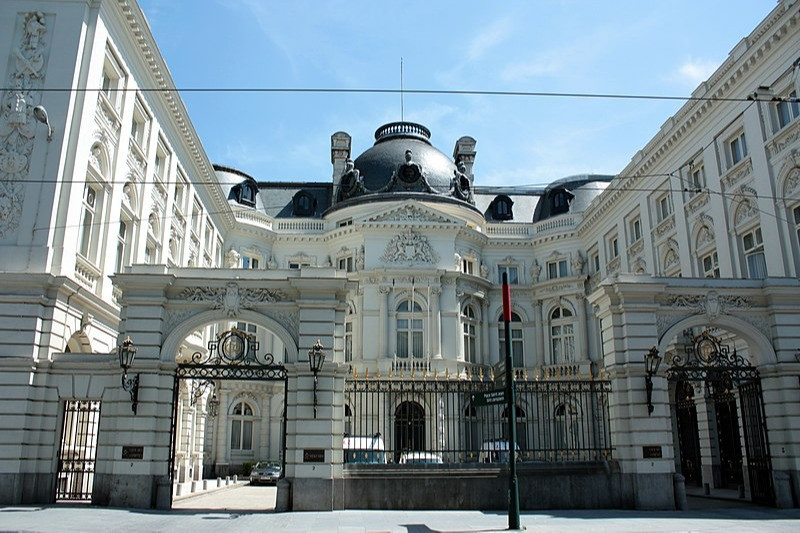Dans un rapport publié le 9 février, le Conseil des prélèvements obligatoires (CPO), institution rattachée à la Cour des comptes, rappelle l’objectif premier de la TVA : le financement des services publics. Le CPO regrette notamment que l’État ne perçoive plus que la moitié des recettes de TVA, et appelle à éviter la multiplication des taux réduits, inefficaces sur le plan économique.
La TVA doit rester un impôt de rendement
Comme le rappelle le rapport du CPO, la TVA est le « principal impôt du système fiscal français », possédant « de nombreux avantages pour les finances publiques et pour l’économie ».
🗣️@pierremoscovici présente ce matin le rapport - très attendu ! - du Conseil des prélèvements obligatoires (CPO) sur la #TVA.
— Cour des comptes (@Courdescomptes) February 9, 2023
➡️La TVA est le principal impôt du système fiscal français, avec un rendement de 186 Md€ en 2021, soit 17 % des prélèvements obligatoires. pic.twitter.com/7tIYQl7gU8
Or, alors que l’État percevait 93 % des recettes de TVA en 2015, il n’en touchait plus que 51 % en 2021, le reste étant affecté aux collectivités territoriales et aux organismes de protection sociale.
Le CPO préconise d’éviter les affectations de TVA « en dehors de ces deux champs ». Il mentionne notamment le financement de l’audiovisuel public, depuis la suppression de la redevance, par une fraction de la TVA, et souligne ses « effets indésirables ».
Le rapport s’attarde également sur la fraude à la TVA. Selon les estimations de l’INSEE, les « irrégularités, intentionnelles ou non », seraient comprises entre 20 et 26 milliards d’euros, « sur la base de données de 2012 ». Le CPO explique que la numérisation de l’économie a ouvert la porte à de nouveaux types de fraude.
Limiter les taux réduits de TVA
Selon le CPO, les taux réduits représentent un manque à gagner de 47 milliards d’euros, soit 24 % du rendement de la TVA en 2021. Il existe au total pas moins de 43 dispositifs qui sont autant de niches fiscales.
Parmi les 10 niches fiscales pesant le plus sur le budget de l’État, on trouve 4 dispositifs TVA :
- Le taux réduit de 10 % pour certains travaux d’amélioration, d’aménagement et de transformation des logements (hors travaux de rénovation énergétique), pour un coût de 4,5 milliards d’euros ;
- Le taux réduit de 5,5 % pour les travaux de rénovation énergétique, dont le coût est de 2 milliards d’euros ;
- Le taux réduit de 10 % dans la restauration, pour un montant de 4,2 milliards d’euros ;
- Les taux de TVA dérogatoires (8,5 % pour le taux normal et 2,1 % pour le taux réduit) dans les collectivités d’outre-mer, pour un coût de 3,5 milliards d’euros.
Au sein de l’Union européenne, la France compte parmi les pays auxquels les mesures dérogatoires de TVA coûtent le plus cher. Alors que la TVA au taux normal représente en moyenne 71 % de l’assiette en Europe, elle n’atteint que 65 % en France.
Or, selon le rapport du CPO, l’efficacité des taux réduits de TVA sur le plan économique est « limitée » et constitue « une source de complexité pour les entreprises » qui doivent en maitriser les bases et apprendre à la récupérer pour bien maîtriser leur comptabilité.
L’institution recommande donc de ne pas adopter de nouveaux taux réduits, et de privilégier « d’autres outils pour poursuivre des objectifs économiques et de politique publique ».
Principales conclusions du Conseil des prélèvements obligatoires (#CPO) :
— Cour des comptes (@Courdescomptes) February 9, 2023
▪️ une baisse de #TVA est moins efficace que d’autres outils de relance budgétaire,
▪️ il faut maintenir le rendement de la TVA pour financer les services publics. ⤵️https://t.co/F61nDaAnai
